Health
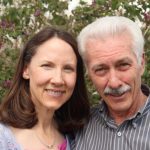
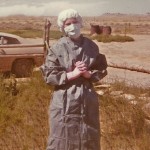 My sister-in-law, Jennifer Parmely is a busy person in just about every way. Jennifer is a labor and delivery nurse who is close to retirement. I sometimes find myself amazed that she can possible have been helping to deliver babies for about 40 years now. She has assisted in the delivery of more babies than I’m sure even she knows or could count. It’s a lot of years of deliveries, some of which were her own grandnieces and grandnephews. I know that my girls, Corrie Petersen and Amy Royce were both very thankful to have their aunt in the room with them when they gave birth, and so was I. It’s hard to watch your kids go through so much pain, and it is comforting to know that their aunt, who was a delivery room nurse, and who cared about my kids, was there with them during one of the hardest times in their lives, even if they were also the happiest moments of their lives. Jennfer has been that blessing to so many people, friends, family, and strangers, and all of them are so thankful.
My sister-in-law, Jennifer Parmely is a busy person in just about every way. Jennifer is a labor and delivery nurse who is close to retirement. I sometimes find myself amazed that she can possible have been helping to deliver babies for about 40 years now. She has assisted in the delivery of more babies than I’m sure even she knows or could count. It’s a lot of years of deliveries, some of which were her own grandnieces and grandnephews. I know that my girls, Corrie Petersen and Amy Royce were both very thankful to have their aunt in the room with them when they gave birth, and so was I. It’s hard to watch your kids go through so much pain, and it is comforting to know that their aunt, who was a delivery room nurse, and who cared about my kids, was there with them during one of the hardest times in their lives, even if they were also the happiest moments of their lives. Jennfer has been that blessing to so many people, friends, family, and strangers, and all of them are so thankful.
Jennifer is also an athlete. She hikes, skis, rides bicycles, and also does many indoor forms of exercise there is. 
 Jennifer and her partner, Brian Cratty have a cabin on Casper Mountain, so they can be closer to the mountain and activities they love. For them, Casper Mountain is their “happy place.” Jennifer and Brian have hiked many places, including to heights as high as 14,473 feet when they climbed Mount Elbert in Colorado, called a 14er. She has also hiked in Vermont, Maine, and New Zealand…yes, New Zealand. That is a dedicated hiker, and I thought I was. Not nearly as much as Jennifer. I think when Jennifer retires, she will wonder how she had time to work with all of her athletic passions.
Jennifer and her partner, Brian Cratty have a cabin on Casper Mountain, so they can be closer to the mountain and activities they love. For them, Casper Mountain is their “happy place.” Jennifer and Brian have hiked many places, including to heights as high as 14,473 feet when they climbed Mount Elbert in Colorado, called a 14er. She has also hiked in Vermont, Maine, and New Zealand…yes, New Zealand. That is a dedicated hiker, and I thought I was. Not nearly as much as Jennifer. I think when Jennifer retires, she will wonder how she had time to work with all of her athletic passions.
While being a nurse, an athlete, as well as mom of three boys, Barry Schulenberg (married to Kellie), JD Parmely, and Eric Parmely (married to Ashley), keeps Jennifer quite busy, her latest blessings are her grandchildren. Jennifer has three granddaughters, Reagan, Hattie, and Maeve Parmely, and grandson Bowen 
 Parmely…these are the children on her son Eric and his wife Ashley. Jennifer loves to do special things for the kids, like their own special cake for their birthday, taking them on a special shopping trip for their birthdays, and taking turns spending the night with their grandparents. She works hard to make things special for each of them. Jennifer goes by Oma to the kids, which is German for Grandma…a fitting name for a woman of German descent (along with a lot of English). For Jennifer, life is good. Today is Jennifer’s birthday. Happy birthday Jennifer!! Have a great day!! We love you!!
Parmely…these are the children on her son Eric and his wife Ashley. Jennifer loves to do special things for the kids, like their own special cake for their birthday, taking them on a special shopping trip for their birthdays, and taking turns spending the night with their grandparents. She works hard to make things special for each of them. Jennifer goes by Oma to the kids, which is German for Grandma…a fitting name for a woman of German descent (along with a lot of English). For Jennifer, life is good. Today is Jennifer’s birthday. Happy birthday Jennifer!! Have a great day!! We love you!!
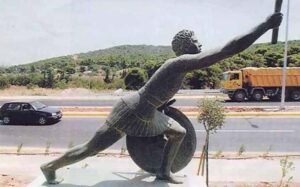 When we think of runners, most of us are impress, and rightly so. To run a race…especially a marathon…is an amazing feat. A marathon is 26.2 miles, but do you know why that is? Supposedly, the length of the race is a “tip of the hat” to a man named Pheidippides. According to legend, Pheidippides, an Athenian soldier, witnessed the combined Athenian and Spartan army’s victory over the Persians at Marathon. Then he supposedly ran 26 miles to Athens to deliver the news. When he arrived, he informed the Athenians, and then promptly perished of exhaustion. In his honor, marathon runners run 26.2 miles to remember that amazing feat, hoping not to share his fate in doing so. Another legend claims that the extra 0.2 miles were added during the 1908 Olympics so the race would end in front of Princess Mary’s pavilion. I’m not sure about the addition of the 0.2 miles, but the reality is that Pheidippides ran a lot further than 26 miles in his “death run” to spread the news of victory.
When we think of runners, most of us are impress, and rightly so. To run a race…especially a marathon…is an amazing feat. A marathon is 26.2 miles, but do you know why that is? Supposedly, the length of the race is a “tip of the hat” to a man named Pheidippides. According to legend, Pheidippides, an Athenian soldier, witnessed the combined Athenian and Spartan army’s victory over the Persians at Marathon. Then he supposedly ran 26 miles to Athens to deliver the news. When he arrived, he informed the Athenians, and then promptly perished of exhaustion. In his honor, marathon runners run 26.2 miles to remember that amazing feat, hoping not to share his fate in doing so. Another legend claims that the extra 0.2 miles were added during the 1908 Olympics so the race would end in front of Princess Mary’s pavilion. I’m not sure about the addition of the 0.2 miles, but the reality is that Pheidippides ran a lot further than 26 miles in his “death run” to spread the news of victory.
For that reason, the real Pheidippides probably wouldn’t have been impressed with someone who ran just 26.2 miles. That would have been child’s play to him. In reality, Pheidippides ran about 300 miles over the course of two days. It’s no wonder he passed away from exhaustion at the end of such a run. Pheidippides was a hemerodromos, or a military long-distance runner. Basically, he was a courier, but these days couriers use a 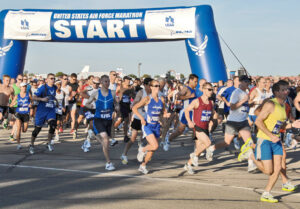 bicycle or car to carry their messages. Nevertheless, in ancient times, runners were the most efficient way to transmit messages over long distances, but Pheidippides’s legendary run was much, much longer than the average run. In fact, it was a “death run.”
bicycle or car to carry their messages. Nevertheless, in ancient times, runners were the most efficient way to transmit messages over long distances, but Pheidippides’s legendary run was much, much longer than the average run. In fact, it was a “death run.”
The actual task assigned to Pheidippides was to run from Athens to Sparta to ask for more soldiers to be sent. It was a task he carried out, and the Spartans agreed. However, they refused to fight until there was a full moon, as was their battle custom. That was six days away, and would be of no help, since the loss of life by then would be too great. So, Pheidippides turned around and ran back to Athens to inform his superiors of the delay. It reportedly took him two days to cover 300 miles, and it was at the end of this run that Pheidippides expired.
Supposedly, it was a different runner entirely who ran from Marathon to Athens to deliver the news about the victory. While remaining anonymous, this runner apparently still perished at the end of his journey, which is why his shorter run is still remembered. I suppose that does make the marathon a treacherous and dangerous race. Over time, Pheidippides’s ultra-marathon was combined with the anonymous runner’s feat. Maybe they thought it was impossible for a man to run 300 miles in two days, and since I’m not runner, I really couldn’t 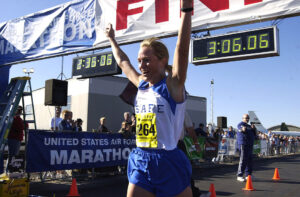 say. For me, while I can and have regularly walked 10 to 15 miles in a day, to run even a mile would be a likely impossibility, so I have great respect for anyone who runs any distance, much less a marathon or even a half-marathon. I am not surprised that these men died at the end of their runs. Quite possibly, their water and even food supply was somewhat limited during their runs, and since I know how tired I am after walking 10 to 15 miles, I can almost imagine the exhaustion after running a marathon or half-marathon, but to run 300 miles over two days, well suffice it to say I would have dropped before the first day ended…which is probably why I don’t run…unless it is to get away from danger, hahaha!!
say. For me, while I can and have regularly walked 10 to 15 miles in a day, to run even a mile would be a likely impossibility, so I have great respect for anyone who runs any distance, much less a marathon or even a half-marathon. I am not surprised that these men died at the end of their runs. Quite possibly, their water and even food supply was somewhat limited during their runs, and since I know how tired I am after walking 10 to 15 miles, I can almost imagine the exhaustion after running a marathon or half-marathon, but to run 300 miles over two days, well suffice it to say I would have dropped before the first day ended…which is probably why I don’t run…unless it is to get away from danger, hahaha!!
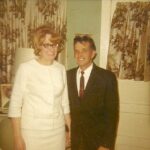 My husband’s uncle, Bobby Cole was born in South Dakota, where he lived for all of his young life. I don’t know all the details of how he met my husband’s aunt, Linda “Knox” Cole, except that they met in Colstrip, Montana, when her parents were living there. It is my thought that Bobby was working at the coal mine in Colstrip, when a certain girl caught his eye. Once he met Linda, he was smitten. He knew she was the love of his life, and he was right. They were married on December 29th, 1965, and their marriage would last until Bobby’s passing on May 30, 2014. Of course, I don’t know these details for sure, except that my husband, Bob Schulenberg told me that they met in Colstrip. I also know that Colstrip is a coal mining town…or at least a coal
My husband’s uncle, Bobby Cole was born in South Dakota, where he lived for all of his young life. I don’t know all the details of how he met my husband’s aunt, Linda “Knox” Cole, except that they met in Colstrip, Montana, when her parents were living there. It is my thought that Bobby was working at the coal mine in Colstrip, when a certain girl caught his eye. Once he met Linda, he was smitten. He knew she was the love of his life, and he was right. They were married on December 29th, 1965, and their marriage would last until Bobby’s passing on May 30, 2014. Of course, I don’t know these details for sure, except that my husband, Bob Schulenberg told me that they met in Colstrip. I also know that Colstrip is a coal mining town…or at least a coal 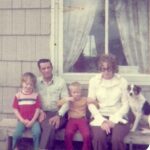 processing town. So, it made sense that mining and coal was the reason Bobby was there. And in the end, it was fate, I guess…or a really good move.
processing town. So, it made sense that mining and coal was the reason Bobby was there. And in the end, it was fate, I guess…or a really good move.
Bobby was raised on his parents’ farm, so the country lifestyle was in his blood, but like many kids, the idea of a change of pace can be very appealing…not to mention getting away from home. Kids, once they graduate from high school tend to either want to move out and get a job or head off to college. For Bobby, the choice was to move to Colstrip, Montana was the best decision he ever made. Once Linda and Bobby met, they never looked back. The dated a while, and then went to Las Vegas, 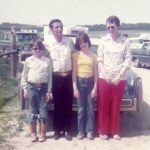 Nevada to get married. Following their wedding, Linda and Bobby would go on to have two children…a daughter, Sheila and a son, Patrick. Since that time, their lives were blessed with multiple grandchildren. While they passed away at a younger age, they lived a good life.
Nevada to get married. Following their wedding, Linda and Bobby would go on to have two children…a daughter, Sheila and a son, Patrick. Since that time, their lives were blessed with multiple grandchildren. While they passed away at a younger age, they lived a good life.
Eventually, life would take Linda and Bobby in an unexpected direction. After the hotel they owned in Kennebec, South Dakota, burned to the ground, they decided that since Kennebec was a small town and business was going nowhere, it was time to leave. They moved to Winnemucca, Nevada, and lived there the rest of their lives. Today would have been Bobby’s 79th birthday. Happy birthday in Heaven, Bobby. We love and miss you very much.
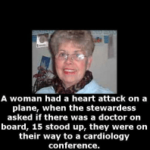 Sometimes, all it takes to make a hero is to be at the right place at the right time. Most of the time, these “right place right time” moments are truly just miracles…they couldn’t be anything else. There is simply no other way that many people could be in the right place at the right time. It was miraculously orchestrated by God, and because it was, people’s lives were saved. No one will ever make me think differently about it, because twice, I was there in these situations.
Sometimes, all it takes to make a hero is to be at the right place at the right time. Most of the time, these “right place right time” moments are truly just miracles…they couldn’t be anything else. There is simply no other way that many people could be in the right place at the right time. It was miraculously orchestrated by God, and because it was, people’s lives were saved. No one will ever make me think differently about it, because twice, I was there in these situations.
In 2003, a sixty-seven-year-old woman named Dorothy Fletcher had a heart attack on a flight to Orlando, Florida. A heart attack in any situation is bad news, but on a flight with limited medical supplies and even fewer medical staff. Immediately following Fletcher’s heart attack, the attendant, as often happens, asked if there was a doctor on board. In a medical emergency, like a heart attack, any doctor is better than no doctor, but what she got was so much more than what she expected. In response to her anxious inquiry for a doctor, 15 cardiologists stood up. Not just doctors…cardiologists, and not just one, 15!! How could this happen? Well, as it turns out, Fletcher has her heart attack on the perfect flight. The 15 cardiologists were on their way to a cardiac conference. Totally a God thing!! Needless to say, she survived.
Heart attacks are scary no matter where you are, and when an emergency happens, things move very fast. On  Sunday afternoon, October 14, 2018, in the Walmart parking lot on the east side of Casper, Wyoming at 4:45pm, I faced my own emergency when my husband Bob Schulenberg had a heart attack in the Walmart parking lot. Before I even knew that my husband was down behind the car, a man who watched him fall was with him. By the time I got to him a cardiac care nurse was treating him. Almost instantly, a transport worker from the hospital who also knew CPR assisted, and then another cardiac care nurse showed up. The first man on scene had called for an ambulance, and with that came the firemen, most of whom my husband, as their mechanic for a number of yeas knew. Within two hours, my husband was recovering from the Widowmaker heart attack. People can say what they want, but without God’s orchestration, my husband would not have had all those people there and every procedure in lace to save his life. Everyone was in a place they normally weren’t, and none of them knew why. Even the heart cath team was at the hospital when they normally wouldn’t have been at that time.
Sunday afternoon, October 14, 2018, in the Walmart parking lot on the east side of Casper, Wyoming at 4:45pm, I faced my own emergency when my husband Bob Schulenberg had a heart attack in the Walmart parking lot. Before I even knew that my husband was down behind the car, a man who watched him fall was with him. By the time I got to him a cardiac care nurse was treating him. Almost instantly, a transport worker from the hospital who also knew CPR assisted, and then another cardiac care nurse showed up. The first man on scene had called for an ambulance, and with that came the firemen, most of whom my husband, as their mechanic for a number of yeas knew. Within two hours, my husband was recovering from the Widowmaker heart attack. People can say what they want, but without God’s orchestration, my husband would not have had all those people there and every procedure in lace to save his life. Everyone was in a place they normally weren’t, and none of them knew why. Even the heart cath team was at the hospital when they normally wouldn’t have been at that time.
My own emergency, fell into place in much the same way. When I was on a hike in the mountains, I slipped and fell…breaking my shoulder. We were ¾ mile from the end of the trail and the car. So, what is the miracle here? Well, there is one. When I fell on that trail, I was with a group of people. My husband and I have hiked many trails…just the two of us. We have never had a “situation” on the trail. On this day, I was with, not only my husband, but my sister-in-law and her partner, a nurse and life flight pilot, respectively. In addition, I was with  my other sister-in-law, who is an experienced caregiver, as are my husband and me. The other people with us were physical therapists. When I said that I had broken my arm (shoulder), I immediately had a medical team at my side. They quickly fashioned a sling out of a bandana and a dog leash (amazing), but when they got me stabilized, and were ready to try to get me up, two hikers came over the hilltop saying that they were CNAs and they could help get me up. Unbelievable!! Then, they gave us a sweatshirt to usa as a gait belt for stability. All those people there for me when I needed them most!! That is totally a God thing. Yes, all these people were in the right place and the right time, but you will never convince me that it was a complete accident that they were. Nope!! That was a God thing!!
my other sister-in-law, who is an experienced caregiver, as are my husband and me. The other people with us were physical therapists. When I said that I had broken my arm (shoulder), I immediately had a medical team at my side. They quickly fashioned a sling out of a bandana and a dog leash (amazing), but when they got me stabilized, and were ready to try to get me up, two hikers came over the hilltop saying that they were CNAs and they could help get me up. Unbelievable!! Then, they gave us a sweatshirt to usa as a gait belt for stability. All those people there for me when I needed them most!! That is totally a God thing. Yes, all these people were in the right place and the right time, but you will never convince me that it was a complete accident that they were. Nope!! That was a God thing!!
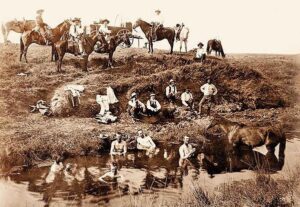
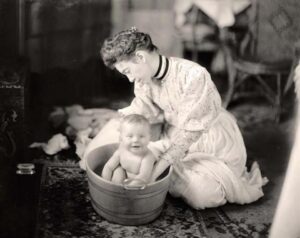 These days, we know that washing our hands and our bodies is important to good health. Of course, washing of hands cleans away dirt, germs, and bacteria, as well as many viruses that cause disease, but in the Old West, there were actually people who thought that bathing could actually make you sick, therefore bathing did not occur on a daily basis in the wild west. I’m sure you can imagine just how stinky things got. I suppose that if two people got very near each other, it would be a competition to see who smelled the worst. The reality is that we have all encountered someone who really needed a bath. Most of us would never tell that person that they stunk, but we might really hope that this wasn’t going to be the norm, or we might have to rethink the friendship.
These days, we know that washing our hands and our bodies is important to good health. Of course, washing of hands cleans away dirt, germs, and bacteria, as well as many viruses that cause disease, but in the Old West, there were actually people who thought that bathing could actually make you sick, therefore bathing did not occur on a daily basis in the wild west. I’m sure you can imagine just how stinky things got. I suppose that if two people got very near each other, it would be a competition to see who smelled the worst. The reality is that we have all encountered someone who really needed a bath. Most of us would never tell that person that they stunk, but we might really hope that this wasn’t going to be the norm, or we might have to rethink the friendship.
Women in the old west “bathed” a little more often than the men, if you could exactly call it that. Mostly any daily bathing would consist of a pitcher of water and a washcloth, with the ritual performed in the bedroom of the home. Men on the cattle trail might take a plunge into a watering hole to get “cleaned up”, and quite often the bathing and the laundry would happen at the same time, meaning that a good portion of the body didn’t really get scrubbed up. Nevertheless, it was a good way to rid yourself of that nasty trail dust accumulated on the trail that day…or maybe the prior several days. This type of bathing might also involve armed guards to keep the Indians away.
To make matters worse, when people did bathe, it might be done in the kitchen in a large tub of water, used by the husband first, the mother second, and the children by ages on down the line. As you can imagine, the water got pretty black by the time the youngest child was bathed. Then the water was finally dumped. That is actually where the term, “don’t throw the baby out with the bath water came from.” Sometimes being the youngest had its perks, and other times not so much. Some people would go to public bathhouses, where they might actually have to pay extra for “clean” water, and the guy after them might end up using their water, if he didn’t want to pay the extra fee.
The fact that bathing was inconvenient, and for some, scary, made people sometimes resort to other methods 
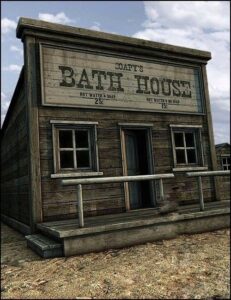 to rid themselves of the stinky odor. After all, lemon verbena wasn’t just a type of perfume. It helped to mask the odor that would come quickly with infrequent bathing. To make matters worse, people lived in primitive surroundings with lice, fleas and bedbugs, and the smell of their own dirty bodies drew flies and mosquitoes. Hopefully, the lemon verbena would help to keep the pests away…but I wouldn’t count on it really. I don’t think it masked the smell that well.
to rid themselves of the stinky odor. After all, lemon verbena wasn’t just a type of perfume. It helped to mask the odor that would come quickly with infrequent bathing. To make matters worse, people lived in primitive surroundings with lice, fleas and bedbugs, and the smell of their own dirty bodies drew flies and mosquitoes. Hopefully, the lemon verbena would help to keep the pests away…but I wouldn’t count on it really. I don’t think it masked the smell that well.
These days, we not only know that bathing is important to keep the stinky smells away, but it’s important to keep sickness away too. Most of us wouldn’t think of going long without bathing, after all, warding off sickness is important, but warding off that smell is vital!!
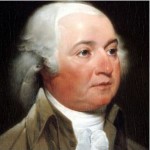
 A number of presidents and their families have suffered the unthinkable during their time in the White House…the loss of a child. The Adams, Lincoln, Coolidge, and Kennedy families all suffered the loss of a child while in office; the Pierce family lost their last surviving child while en route to Washington to attend Franklin Pierce’s inauguration. John Adams’ grown son Charles died of alcoholism in 1800, shortly after the president lost his reelection bid. Thomas Jefferson’s grown daughter Mary died in 1804, three months after giving birth to her third child. Franklin Pierce lost all three of his sons at an early age. Eleven-year-old Benny, his only surviving child, was killed in a train accident in January 1853, two months before Pierce’s inauguration. Abraham Lincoln lost his son William “Willie” in 1862 in the middle of the Civil War. John F Kennedy lost his son, Patrick two days after he was born on August 7, 1963.
A number of presidents and their families have suffered the unthinkable during their time in the White House…the loss of a child. The Adams, Lincoln, Coolidge, and Kennedy families all suffered the loss of a child while in office; the Pierce family lost their last surviving child while en route to Washington to attend Franklin Pierce’s inauguration. John Adams’ grown son Charles died of alcoholism in 1800, shortly after the president lost his reelection bid. Thomas Jefferson’s grown daughter Mary died in 1804, three months after giving birth to her third child. Franklin Pierce lost all three of his sons at an early age. Eleven-year-old Benny, his only surviving child, was killed in a train accident in January 1853, two months before Pierce’s inauguration. Abraham Lincoln lost his son William “Willie” in 1862 in the middle of the Civil War. John F Kennedy lost his son, Patrick two days after he was born on August 7, 1963.
While it is always horrible when a child dies, whether the parents are famous or not, I find the death of Calvin Coolidge’s son to be among the saddest. While the deaths of these other presidents’ children are sad, little could have been done to change those losses. Calvin Coolidge had two sons, John (the oldest) and Calvin Jr. The boys spent the school year at boarding school, but they spent breaks from boarding school at the White House after he became president in 1923. The oldest son, John was born on September 7, 1906, and Calvin Jr was born on April 13, 1908.
On June 30, 1924, John and Calvin Jr were playing tennis on the courts at the White House. It was a hot summer day…the 91° heat was sweltering. The boys felt that it was too hot for socks, and during the game, Calvin Jr got a blood blister on one of his toes. Within a few days, Calvin Jr was not feeling well. He was diagnosed with blood poisoning…specifically a staphylococcus infection that, at the time, was usually treated with mercury. I’m no doctor, and many advances in the prevention and treatment of infections have been made 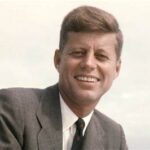
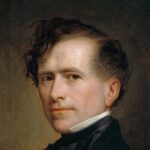 over the years. One of the best ways to prevent a staphylococcus infection is proper hygiene…proper, frequent handwashing, and hygiene…or in this case, washing the toe several times a day. The feet are often a breeding ground for bacteria, because they are constantly in a hot, sweaty shoe.
over the years. One of the best ways to prevent a staphylococcus infection is proper hygiene…proper, frequent handwashing, and hygiene…or in this case, washing the toe several times a day. The feet are often a breeding ground for bacteria, because they are constantly in a hot, sweaty shoe.
By July 2, Calvin Jr was limping, running a fever, and had swollen glands in his groin. The blister on his third toe darkened, swelled to the size of a thumbnail, and red lines streaked his legs. This was in the days before antibiotics, and Alexander Fleming’s discovery of penicillin was still four years off. In the words of the attending presidential physician, Calvin Jr was “in trouble.” As Calvin Jr battled sepsis for a week, his father battled despair and really pure panic. It was the kind of agony that only a parent who has lost a child can really understand. Calvin Sr tried to trust that his son was getting “all that medical science” could offer and tried to keep up hope that “he may be better in a few days,” but Calvin Jr passed away at Walter Reed Army General Hospital on July 7, 1924.
President Coolidge and his wife, Grace, were at Calvin Jr’s bedside when he passed, and according to observers, the president’s face resembled “the bleak desolation of cold November rain beating on gray Vermont granite.” Their hearts were broken, and the President often wept, looking out his window where Calvin Jr once played tennis. It was his thought that if he hadn’t been president, his son would have been with them still. He said, “We do not know what would have happened to him under other circumstances, but if I had not been President, he would not have raised a blister on his toe, which resulted in blood poisoning, playing lawn tennis on the South Grounds.”
Starting to live life again after such a horrific loss is never easy, and many people really never make that return 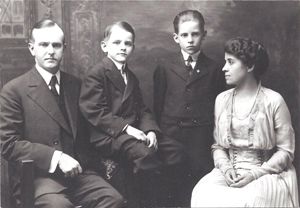
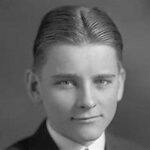 to life. Trying to grieve the loss of a child in such a public setting would be excruciating, and I can’t imagine being forced to live that way. Nevertheless, while much of the wind went out of their sails, the Coolidge family did go forward, as their son would have wanted them to. It’s what a family does. John married and had two daughters…Cynthia and Lydia. The daughters gave President two grandsons and a granddaughter. I think Calvin Jr would be pleased to know that they went forward to live a good life.
to life. Trying to grieve the loss of a child in such a public setting would be excruciating, and I can’t imagine being forced to live that way. Nevertheless, while much of the wind went out of their sails, the Coolidge family did go forward, as their son would have wanted them to. It’s what a family does. John married and had two daughters…Cynthia and Lydia. The daughters gave President two grandsons and a granddaughter. I think Calvin Jr would be pleased to know that they went forward to live a good life.

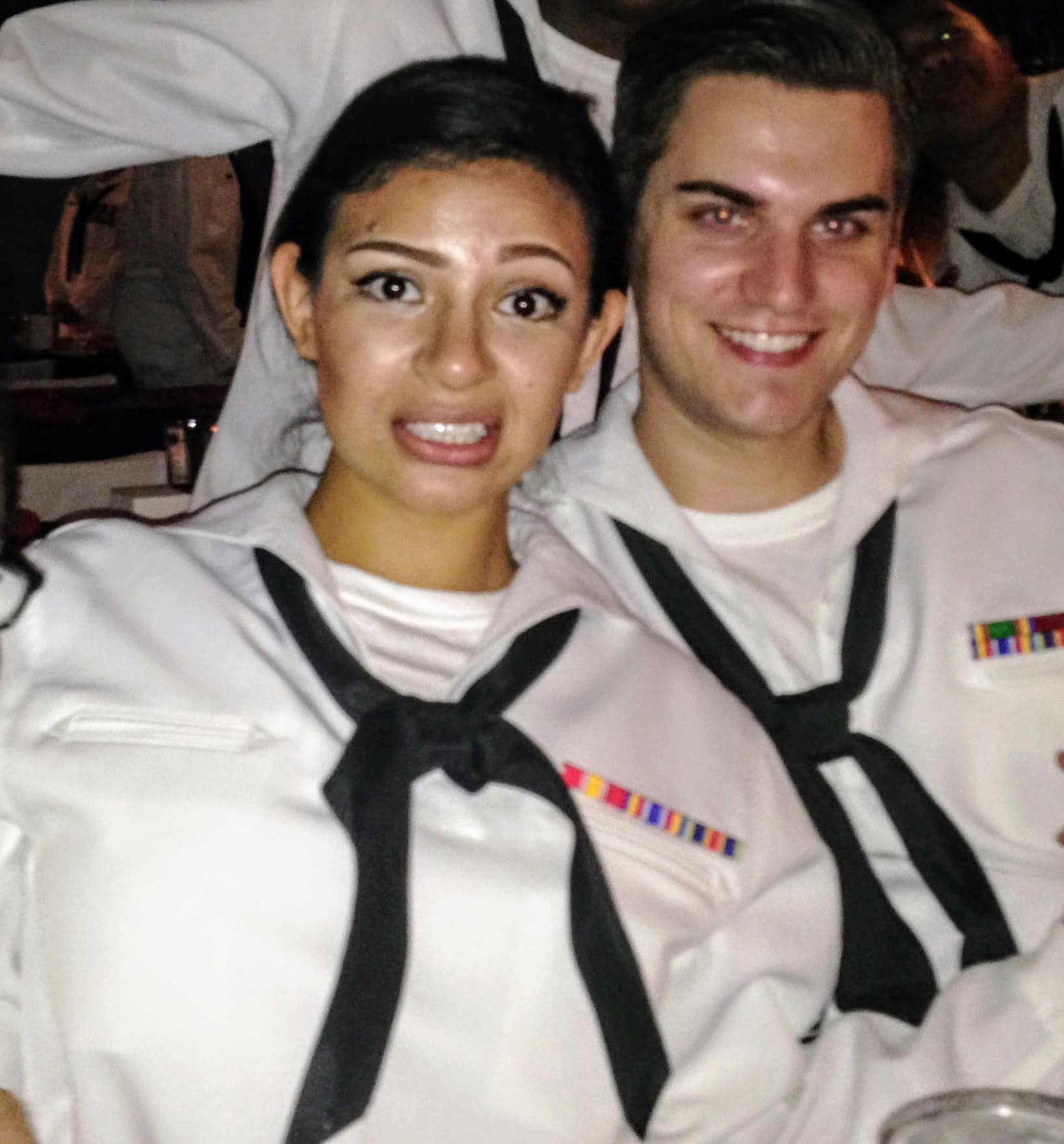 My niece, Gaby Beach has had a very busy year. Following her graduation from nursing school, Gaby took a job at Wyoming Medical Center, where both she and her husband, Allen Beach now work. Gaby now works in the PCU, which is an area of the hospital for patients who don’t need to be in the ICU, but aren’t quite ready for the care they would get on a regular floor. Gaby really likes her job, and she has been assigned as the charge nurse periodically.
My niece, Gaby Beach has had a very busy year. Following her graduation from nursing school, Gaby took a job at Wyoming Medical Center, where both she and her husband, Allen Beach now work. Gaby now works in the PCU, which is an area of the hospital for patients who don’t need to be in the ICU, but aren’t quite ready for the care they would get on a regular floor. Gaby really likes her job, and she has been assigned as the charge nurse periodically.
Because they both work at the hospital now, Gaby and Allen decided to buy a house near their work. They had been renting an apartment for Allen’s parents, Caryl and Mike Reed, but the place was far out in the country, and now that they were both working, they felt it was time for a 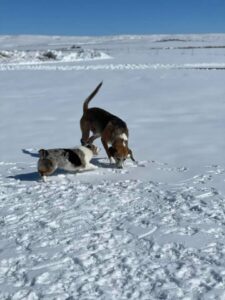 home of their own. They found a great house that wasn’t too far from the hospital, and now they are working on making it their own, and enjoying the time with their dogs, Oly and Jasper. They’ve removed some trees in the back yard that we’re old and growing into power lines. They hope to build a garage in the back yard sometime in the near future, but for now they will most likely settle for a taller privacy fence.
home of their own. They found a great house that wasn’t too far from the hospital, and now they are working on making it their own, and enjoying the time with their dogs, Oly and Jasper. They’ve removed some trees in the back yard that we’re old and growing into power lines. They hope to build a garage in the back yard sometime in the near future, but for now they will most likely settle for a taller privacy fence.
Having school out of the way for now has been really nice for Gaby and Allen, who has a degree in Hospital administration. Gaby’s degree is in nursing, of course, and at some point, down the road, she plans to work toward her bachelor’s degree in nursing (BSN), but for now she wants to just relax and enjoy her job and life for a while.
They have plans to go to Disney World in April. They have worked very hard, and a fun break will be awesome for them. I’m sure that after a cold winter, a trip to sunny Florida would be really nice. Gaby and Allen really love to travel, but with Covid, they haven’t been able to do much of that, making this trip to Florida a big deal. 
 Covid has kept everyone closer to home these days, but now it’s time to live a little. I know they will have a great time.
Covid has kept everyone closer to home these days, but now it’s time to live a little. I know they will have a great time.
Gaby and Allen first met when they were in the Navy, stationed at the same place. That is also where Gaby became interested in becoming a nurse. Being a Corpsman taught her so much about medicine, and so when she was done with her term of service, she went back to school to become a nurse, and she has become an asset to the hospital. Today is Gaby’s birthday. Happy birthday Gaby!! Have a great day!! We love you!!
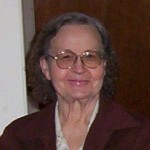 It’s hard to believe that my mother-in-law, Joann Schulenberg has been in Heaven for four years now. Her passing took time. Alzheimer’s Disease is a slow killer, in comparison to other diseases. That doesn’t make Alzheimer’s Disease any less devastating, and in fact, it just might be more devastating, because before the end comes, the patient has already lost their memory. Still, if you look for the good in the situation, you might just find that while they may not remember many new things, including who you are, now that you are grown up, they have many old memories that can really enrich your life…if you are willing to listen to their stories.
It’s hard to believe that my mother-in-law, Joann Schulenberg has been in Heaven for four years now. Her passing took time. Alzheimer’s Disease is a slow killer, in comparison to other diseases. That doesn’t make Alzheimer’s Disease any less devastating, and in fact, it just might be more devastating, because before the end comes, the patient has already lost their memory. Still, if you look for the good in the situation, you might just find that while they may not remember many new things, including who you are, now that you are grown up, they have many old memories that can really enrich your life…if you are willing to listen to their stories.
My mother-in-law often wasn’t sure of our names when we came to visit her, but by the look on her face and the alertness of her posture, you knew that she knew that you belonged to her. Many people place a lot of emphasis on the patient knowing their family’s names, but that is just setting yourself up for sadness. And you miss the recognition that comes without the name. My mother-in-law did so much for so many people…from knitting, to crocheting, to sewing, to cooking, my mother-in-law did a lot for the people around her. She lived a good long life, much of it raising the vegetables and meat for the family. She saw eras of time that people today can’t understand. With depression and recession, boom and bust, mining and agriculture, she had a diverse viewpoint, and that made her, unlike the rest of the people around her knowledgeable in different ways of life.
As her disease progressed, my mother-in-law, lost her recent memories, but she retained the old memories, and she passed them along to her family…often in the funniest ways. One minute you might find yourself telling her what time to get on the school bus, the next you think you have her all figured out when she tells you that they are having dinner at your house…like you aren’t you. When you try to play along, and ask her what the 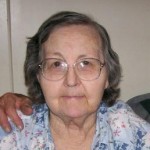 “imaginary you” will be cooking, suddenly she was back and making you feel ridiculous, by saying, “I don’t know, what are you cooking?” I know people consider Alzheimer’s Disease to be a tragic, devastating disease, and I suppose it is, but when people think about how devastating Alzheimer’s is, they are thinking of themselves…what they are missing out on, not thinking about the patient…who won’t remember grief or loss, who gets to become younger in their mind, and who ends up without a care in the world. Attitude is a big part of dealing with Alzheimer’s Disease, and I don’t mean the attitude of the patient, I mean the attitude of the family. It makes all the difference in the world. Four years ago, my mother-in-law left us for Heaven, where her mind is clear again. I am truly happy for her, even though we miss her very much.
“imaginary you” will be cooking, suddenly she was back and making you feel ridiculous, by saying, “I don’t know, what are you cooking?” I know people consider Alzheimer’s Disease to be a tragic, devastating disease, and I suppose it is, but when people think about how devastating Alzheimer’s is, they are thinking of themselves…what they are missing out on, not thinking about the patient…who won’t remember grief or loss, who gets to become younger in their mind, and who ends up without a care in the world. Attitude is a big part of dealing with Alzheimer’s Disease, and I don’t mean the attitude of the patient, I mean the attitude of the family. It makes all the difference in the world. Four years ago, my mother-in-law left us for Heaven, where her mind is clear again. I am truly happy for her, even though we miss her very much.

 Depending on who you talk to, you will hear a variety of thoughts on Christmas, from it being a pagan holiday to it being a Christian holiday, to Jesus being born in the spring…which is interesting to me, because my nephew, Barry Schulenberg celebrated his December 11th birthday on June 11 for a long time so that it wasn’t so close to Christmas…thereby spreading his gift receiving out over the year. Noe a bad idea. Really, my point is that the time of year really doesn’t matter. It is the fact that you are celebrating the birth of our Lord and Savior. I don’t think He cares, one way or the other, if we have the date wrong. Birthdays are often celebrated on a day other than the actual day…and Christmas has also been celebrated on a day other than the 25th of December, due to work schedules, illness, and distance.
Depending on who you talk to, you will hear a variety of thoughts on Christmas, from it being a pagan holiday to it being a Christian holiday, to Jesus being born in the spring…which is interesting to me, because my nephew, Barry Schulenberg celebrated his December 11th birthday on June 11 for a long time so that it wasn’t so close to Christmas…thereby spreading his gift receiving out over the year. Noe a bad idea. Really, my point is that the time of year really doesn’t matter. It is the fact that you are celebrating the birth of our Lord and Savior. I don’t think He cares, one way or the other, if we have the date wrong. Birthdays are often celebrated on a day other than the actual day…and Christmas has also been celebrated on a day other than the 25th of December, due to work schedules, illness, and distance.
The point is that Christmas…on whatever day it is celebrated…is the celebrate Jesus’ birth. Our Savior, the Son of God, the Word of the Trinity, took on flesh to become a human and gave up Heaven to come to Earth to die  for us, that we might live in Heaven with Him and that we can become the Righteousness of God, even here on Earth. That is the reason we celebrate Jesus, and the reason we always will. People can call Christmas whatever they want to, but those of us who serve the Lord will always know exactly why Christmas is important. They can never take that away from us.
for us, that we might live in Heaven with Him and that we can become the Righteousness of God, even here on Earth. That is the reason we celebrate Jesus, and the reason we always will. People can call Christmas whatever they want to, but those of us who serve the Lord will always know exactly why Christmas is important. They can never take that away from us.
Jesus was the greatest gift God ever gave to the world, and that is why we give gifts to this day It is to remember the greatest gift ever given, because of a love that is beyond anything we can possibly imagine. If you want to really understand the love of your Heavenly, remember how much your parents love you, and then multiply it by infinity. That is the love of God. The Bible says in John 3:16, “For God so loved the world, that He gave His only begotten Son, that whosoever believes in Him, should not perish, but have everlasting Life.” God is Love, and He gave His Son for us. Praise God, Happy birthday Jesus, and Merry Christmas to all of you.

 It’s hard for me to believe that my husband, Bob Schulenberg’s aunt, Linda Cole has been gone now for 5 years. She always seemed to be so full of life, and then suddenly, she was gone. In many ways, Linda quit living…really living when her husband, Bobby Cole passed away May 30, 2014. Bobby was her soulmate, and when they married, it was “until death do they part” and so it was, when Bobby passed away. By that time, their kids had both married and moved away, so I’m sure there was a degree of loneliness too, but it was still a shock to all of us, because we had no idea that her death was so close. Heart attacks are that way though. One minute the victim is fine, and the next they aren’t.
It’s hard for me to believe that my husband, Bob Schulenberg’s aunt, Linda Cole has been gone now for 5 years. She always seemed to be so full of life, and then suddenly, she was gone. In many ways, Linda quit living…really living when her husband, Bobby Cole passed away May 30, 2014. Bobby was her soulmate, and when they married, it was “until death do they part” and so it was, when Bobby passed away. By that time, their kids had both married and moved away, so I’m sure there was a degree of loneliness too, but it was still a shock to all of us, because we had no idea that her death was so close. Heart attacks are that way though. One minute the victim is fine, and the next they aren’t.
Linda had lived a number of places in her lifetime, but in many ways, I think she liked Winnemucca, Nevada the best. It was small enough to be likeable, but with the gambling industry there was always something to do. Linda and Bobby both worked in a casino, and had an active social life. They had always loved dancing, especially square dancing, and while I don’t know if they had a place to dance in Winnemucca, they did when they were in Kennebec, South Dakota. They also love to pay cards, which might be why they enjoyed the casinos so much. They used to spend hours playing cards with any of the family who came to visit.
Prior to moving to Winnemucca, they had owned a hotel in Kennebec, but in a strange twist of fate, the building 
 was struck by lightning years ago, and actually burned to the ground. I had never known of a building that was destroyed by lightning, but it does happen. With their source of income gone, and Kennebec being the extremely small town it is, there was nothing to do, but to move away. So, they went to Winnemucca, Nevada. It was a huge life change, but one they were excited to make. They enjoyed life in Winnemucca, enjoyed being grandparents, and each other. They had a good life. Today would have been Linda’s 75th birthday. Happy birthday in Heaven, Linda. We love and miss you very much.
was struck by lightning years ago, and actually burned to the ground. I had never known of a building that was destroyed by lightning, but it does happen. With their source of income gone, and Kennebec being the extremely small town it is, there was nothing to do, but to move away. So, they went to Winnemucca, Nevada. It was a huge life change, but one they were excited to make. They enjoyed life in Winnemucca, enjoyed being grandparents, and each other. They had a good life. Today would have been Linda’s 75th birthday. Happy birthday in Heaven, Linda. We love and miss you very much.

